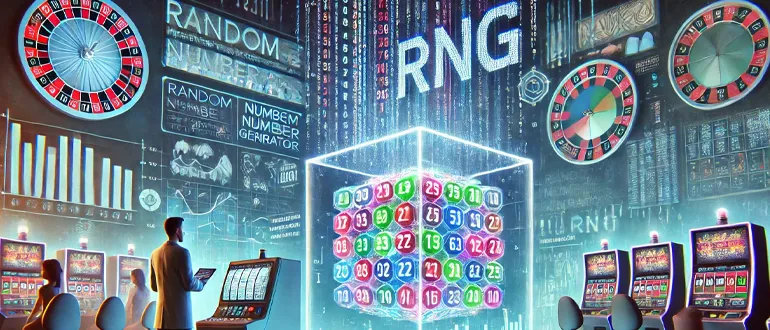
Online casinos must guarantee fair play to their users, and the primary tool for this is the Random Number Generators (RNG). The RNG ensures randomness and unpredictability in game outcomes, maintaining fairness. Yet, players often wonder: Are the results truly random? How are RNGs tested? In this article, we’ll explore what RNGs are, how they function, and who verifies them—so you can enjoy your gaming experience with confidence. Read more on https://casinoreg.net/.
What Is a Random Number Generator?
A Random Number Generator is a program that produces sequences of numbers without any predictable patterns. Online casinos use these numbers to determine game outcomes, such as slot spins, dealt cards, or roulette results.
Core Principles of RNG Operation
- Algorithmic Randomness: RNGs rely on complex mathematical algorithms that generate numbers based on an initial value (seed).
- Pseudorandomness: Most RNGs are not entirely random, as they depend on algorithms, but their output is sufficiently unpredictable for gaming purposes.
- Continuous Updates: RNGs refresh their data thousands of times per second—even when games are inactive—to prevent manipulation.
Why Is Random Number Generators Testing Essential?
RNG verification ensures game integrity and reliability. Without oversight, casinos could manipulate outcomes in their favor. Testing and certification guarantee that results depend solely on luck.
Who Verifies RNGs in Online Casinos?
Independent organizations specialize in RNG testing and casino certification, employing rigorous methods and standards.
Leading Testing Agencies:
- eCOGRA (eCommerce Online Gaming Regulation and Assurance): Known for stringent certification. An eCOGRA seal confirms RNG fairness.
- iTech Labs: Conducts thorough RNG audits to ensure compliance with global standards.
- GLI (Gaming Laboratories International): Operates in over 20 countries, certifying RNGs and validating regulatory compliance.
- TST (Technical Systems Testing): Assesses gaming systems for fairness and randomness.
How Is an Random Number Generators Tested?
Auditors analyze the RNG’s algorithm to confirm it generates numbers without predictable patterns. Results undergo mathematical scrutiny using tests like:
- Chi-Square Test: Checks for uniform number distribution.
- Diehard Tests: A battery of complex assessments to detect anomalies.
- Entropy Test: Measures data randomness.
Testers also evaluate how the RNG responds to seed changes, ensuring no manipulation is possible. Long-term stability is verified to rule out malfunctions or recurring sequences.
Which Games Rely on RNGs?
- Slots: Every spin is determined by the RNG, independent of past or future outcomes.
- Roulette: The RNG decides where the virtual ball lands.
- Table Games: In blackjack and poker, the RNG governs card distribution.
- Bingo & Lotteries: Number draws are entirely RNG-driven.
Benefits of a Certified RNG
Fairness Guaranteed: Players trust that wins depend purely on chance.
Anti-Manipulation: Certified RNGs prevent casino interference.
Game Stability: All participants have equal odds.
Tips for Choosing a Fair Casino
Look for certification seals (e.g., eCOGRA, iTech Labs) on the casino’s site.
Opt for casinos licensed by reputable regulators like MGA or UKGC.
Read player reviews to gauge the casino’s reputation.
Verify if the casino publishes RNG audit reports.
Conclusion
The Random Number Generator is the cornerstone of fair play in online casinos. Independent RNG verification assures players that game outcomes are unpredictable and just. Before playing, ensure your chosen casino has a certified RNG, proper licensing, and positive feedback—so you can game with peace of mind.












